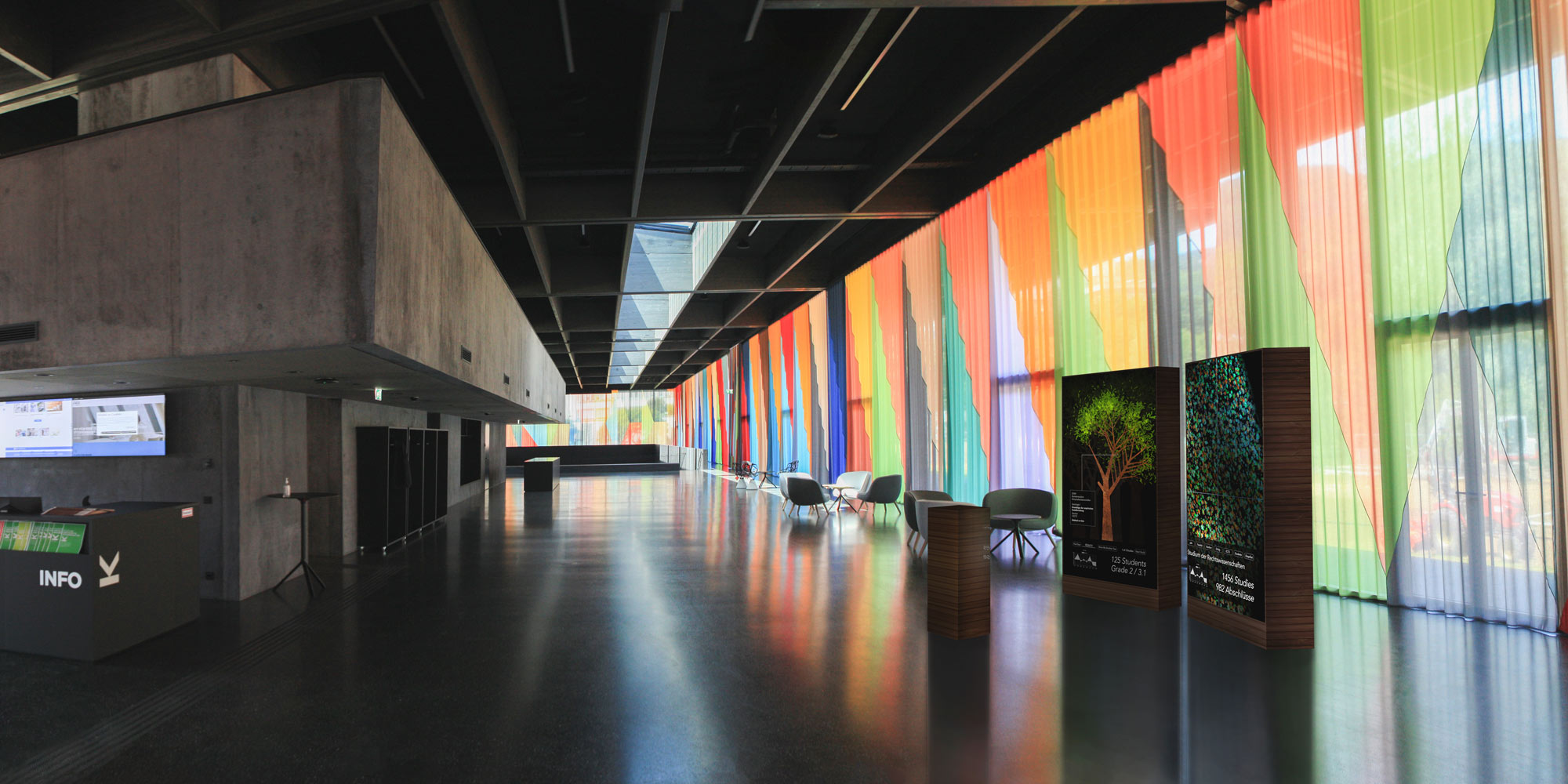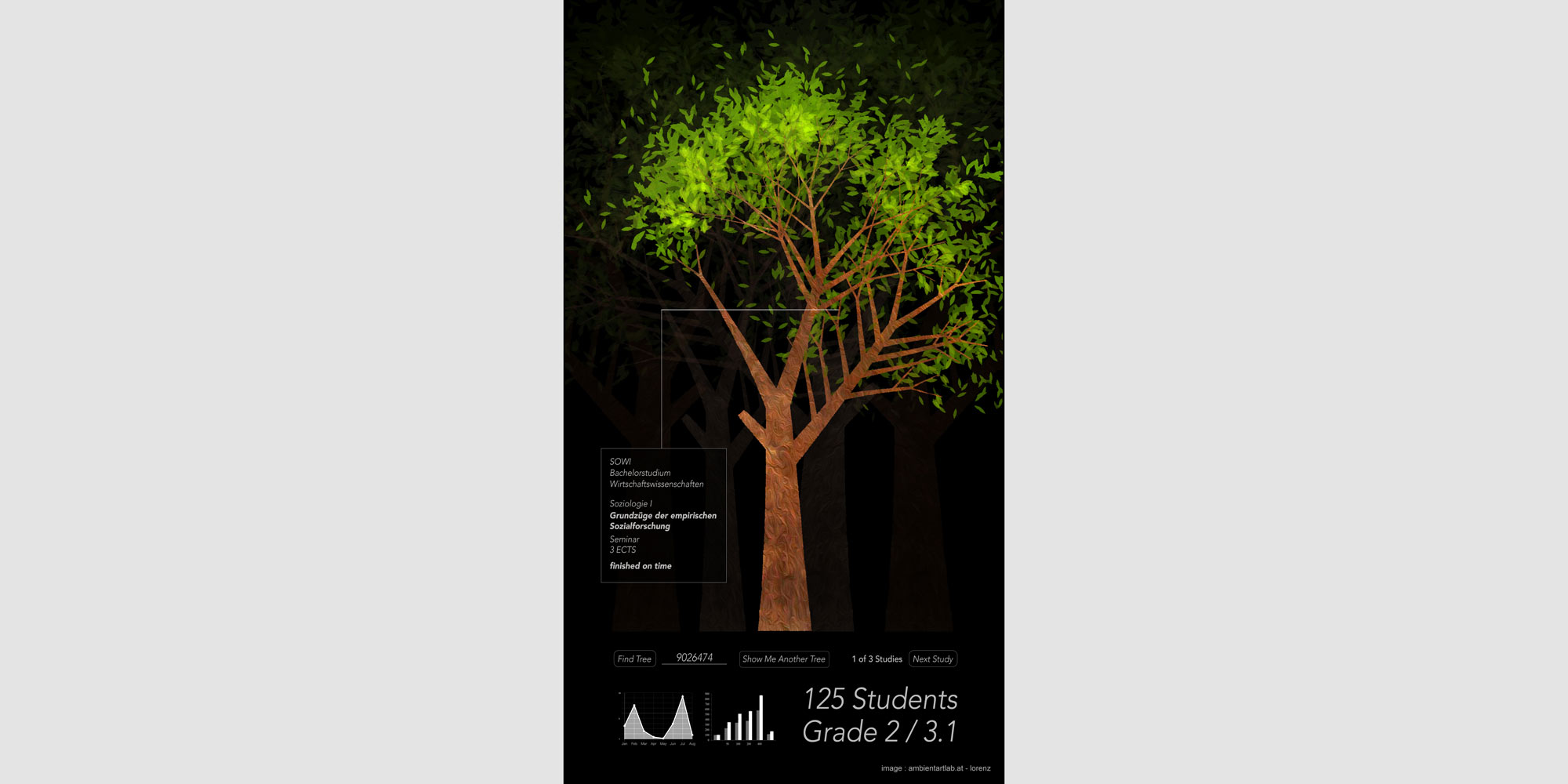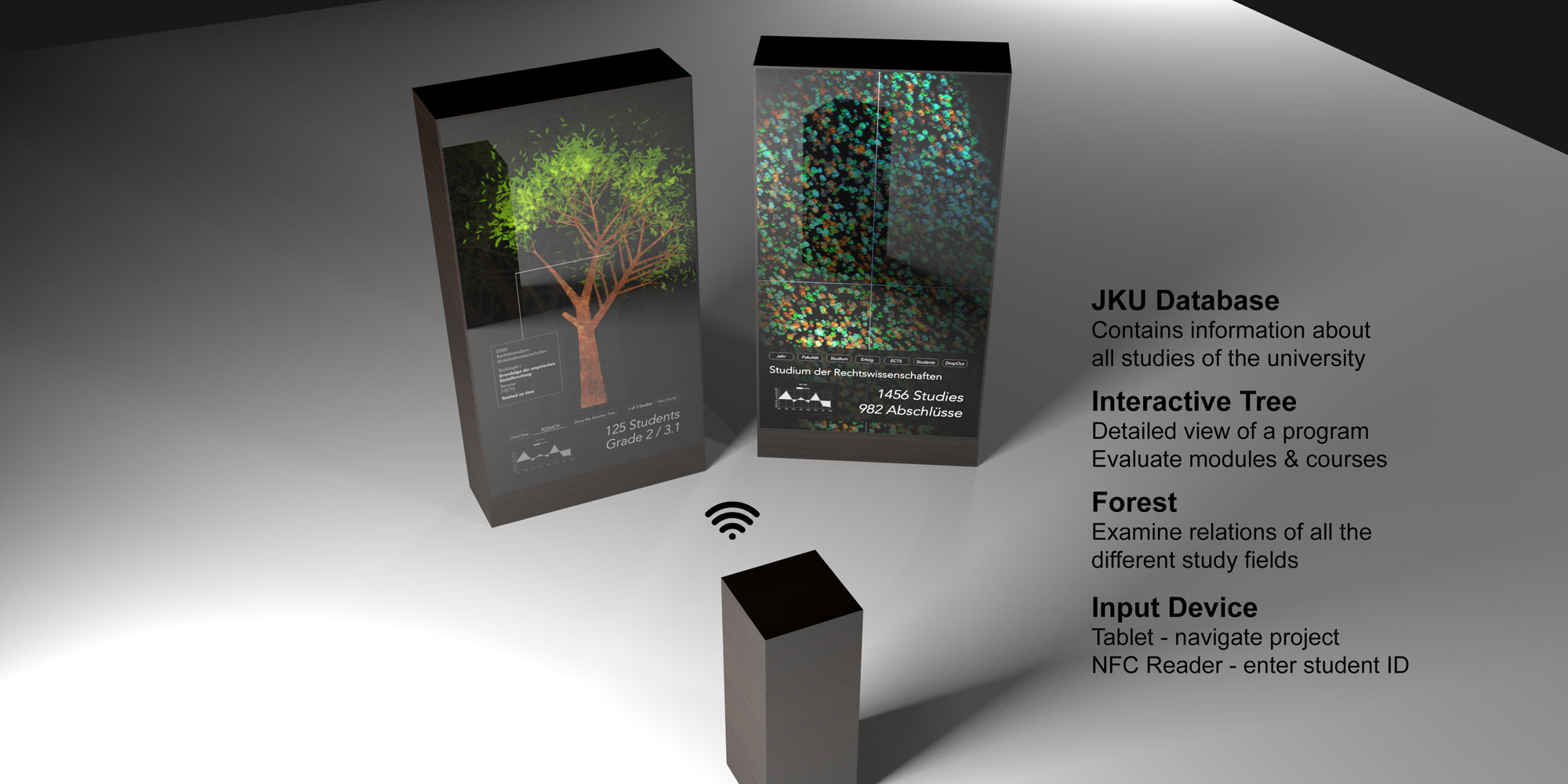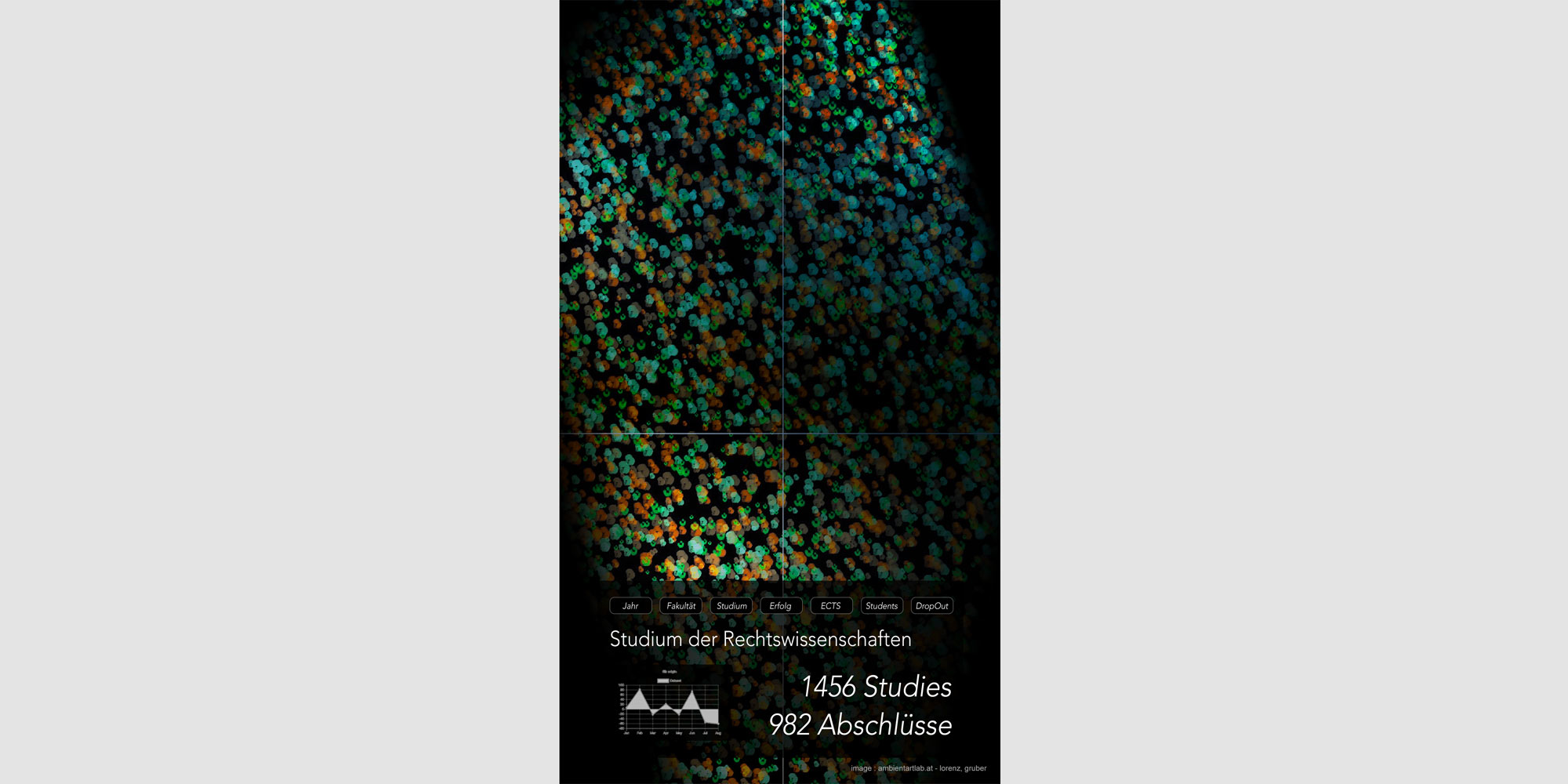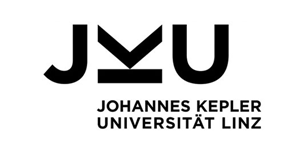Treeversity focuses on the relation between Big Data and data visualization to convey complex information at a glance. A mirror of the university’s inner workings, diligently recording success, failure and evolution. A portrait of its life in the form of a tree. Courses, grades and exams become branches, creating many different trees. Fully grown or nascent, withering or growing erratically. Treeversity shows the university as a forest, providing a tool to analyze its mechanisms at the same time.
Treeversity
Treeversity focuses on the relation between complex data sets and the potential of data visualization to convey complex information at a glance. JKU’s database contains approximately 268,000 enrollment records on 153,000 students, faculties, courses, rooms, exams, schedules and so on. Treeversity illustrates this life as a tree. Courses, grades, and exams become branches, creating different types of trees. Fully grown or still nascent, withering or growing erratically. Each tells a story of the human behind it. You can imagine someone studying full-time, or balancing work, study, and children all at the same time. Realizing a bad choice or having found their destiny. Together, the trees reveal more. In all of the studies, what are the conditions, the evolutions, the successes, and drop-outs?
Video
Project Credits / Acknowledgements
Institute of Digital Business – Johannes Kepler University
Ambientartlab: Thomas Lorenz, Florian Gruber
Supported by Land Oberösterreich
Biography
A.Univ.-Prof. Dr. Dr. Johann Höller studied business administration and law at the JKU and habilitated in information processing and information law. He heads the Institute for Digital Business at the JKU Linz and teaches students in business and economics, web sciences, business informatics, and various other studies at universities and universities of applied sciences. His research focuses on interdisciplinary issues at the intersection of business, information technology, and law. He is a source of ideas – including for the Treeversity Project – and has many years of experience in creating database applications (ILAS, KUSSS, AUWEA) from JKU and their data structures. Many years of work in the field of foreign recognitions, admission application examination, as well as the management of collegial bodies results in a thorough knowledge of studying. Particularly at JKU, as he has served as Chair of the Social Sciences, Economics & Business Faculty, Chair of the Senate, Chair of various Study Commissions, and the JKU Curriculum Examination Committee.
Thomas Lorenz’ work is derived from the interaction of a wide range of fields. Architecture, 3D modeling and visualization, code, graphic and product design, digital media, cultural studies, web sciences, and especially interactive art projects enable him to combine theoretical and practical questions in order to explore the potential of artistic work in the intersection of art, science and society.
Dr. Florian Josef Gruber is a ”Creative Technologist” with more than 15 years of experience in the field of digital design, software development and multimedia content production. His art and design projects have been exhibited internationally. Florian currently works in his design studio in Vienna and implements projects in the areas of data visualization, media design & IT consulting and teaches at several Austrian universities.
Dr. Florian Josef Gruber is a “Creative Technologist” with more than 15 years of experience in the field of digital design, software development and multimedia content production. His art and design projects have been exhibited internationally. Florian currently works in his design studio in Vienna and implements projects in the areas of data visualization, media design & IT consulting and teaches at several Austrian universities.
Mag. Dr. Tanja Illetits-Motta studied Economics with a focus on International Business Administration at the University of Valencia, and the Johannes Kepler University Linz. Since 2005, she has been teaching at the Institute for Data Processing in Social and Economic Sciences, where she also did her doctorate in e-business in 2015. Since then, she has been a Senior Lecturer at the Institute for Digital Business, and is now also the Deputy Head of the Institute. With a focus on teaching, she attaches particular importance to awakening students’ enthusiasm for teaching through the use of innovative digital media and innovative forms of communication.
Dr. Ursula Niederländer, Jurist, Economist, and Deputy Head of the Institute has been researching and teaching IT law, e-learning, and digital business at the Institute of Digital Business, JKU for over 10 years. Her research focuses on the conflict between data protection and data analysis. In addition to working on various Austrian Projects within the scope of law and economy, she has been able to present her research results in various publications and at numerous conferences abroad.
Raphael Blasi finished the Joint-Master-Degree “Digital Business Management”, which is provided by both, the University of Applied Sciences of Upper Austria and the JKU. Especially the learned skills concerning online-marketing, corporate information systems and project management have been broadened by developing software-products, which are based on the stakeholder’s needs, and by collaborating in interdisciplinary teams throughout the financial institution he has been working for. Since 2019 he is additionally working in research and teaching at the Institute of Digital Business of JKU.
Andreas Rösch started his career as student of computer science at the JKU and has worked for more than 10 years at the university in the technical field. In the course of this work he gained insights into different fields of the university and participated in many different projects.
Mag. Stefan Küll, currently PhD student and lecturer at the Institute of Digital Business, became a photographer and cinematographer during his student life. His primary passion was the development of drones for aerial filming. His aim was to offering an unique service from a single source.
